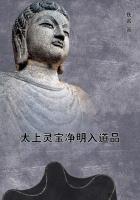We have mentioned Caesar Borgia.It is impossible not to pause for a moment on the name of a man in whom the political morality of Italy was so strongly personified, partially blended with the sterner lineaments of the Spanish character.On two important occasions Machiavelli was admitted to his society; once, at the moment when Caesar's splendid villainy achieved its most signal triumph, when he caught in one snare and crushed at one blow all his most formidable rivals; and again when, exhausted by disease and overwhelmed by misfortunes, which no human prudence could have averted, he was the prisoner of the deadliest enemy of his house.These interviews between the greatest speculative and the greatest practical statesman of the age are fully described in the Correspondence, and form perhaps the most interesting part of it.
From some passages in The Prince, and perhaps also from some indistinct traditions, several writers have supposed a connection between those remarkable men much closer than ever existed.The Envoy has even been accused of prompting the crimes of the artful and merciless tyrant.But from the official documents it is clear that their intercourse, though ostensibly amicable, was in reality hostile.It cannot be doubted, however, that the imagination of Machiavelli was strongly impressed, and his speculations on government coloured, by the observations which he made on the singular character and equally singular fortunes of a man who under such disadvantages had achieved such exploits; who, when sensuality, varied through innumerable forms, could no longer stimulate his sated mind, found a more powerful and durable excitement in the intense thirst of empire and revenge;who emerged from the sloth and luxury of the Roman purple the first prince and general of the age; who, trained in an unwarlike profession, formed a gallant army out of the dregs of an unwarlike people; who, after acquiring sovereignty by destroying his enemies, acquired popularity by destroying his tools; who had begun to employ for the most salutary ends the power which he had attained by the most atrocious means; who tolerated within the sphere of his iron despotism no plunderer or oppressor but himself; and who fell at last amidst the mingled curses and regrets of a people of whom his genius had been the wonder, and might have been the salvation.Some of those crimes of Borgia which to us appear the most odious would not, from causes which we have already considered, have struck an Italian of the fifteenth century with equal horror.Patriotic feeling also might induce Machiavelli to look with some indulgence and regret on the memory of the only leader who could have defended the independence of Italy against the confederate spoilers of Cambray.
On this subject Machiavelli felt most strongly.Indeed the expulsion of the foreign tyrants, and the restoration of that golden age which had preceded the irruption of Charles the Eighth, were projects which, at that time, fascinated all the master-spirits of Italy.The magnificent vision delighted the great but ill-regulated mind of Julius.It divided with manuscripts and sauces, painters, and falcons, the attention of the frivolous Leo.It prompted the generous treason of Morone.It imparted a transient energy to the feeble mind and body of the last Sforza.It excited for one moment an honest ambition in the false heart of Pescara.Ferocity and insolence were not among the vices of the national character.To the discriminating cruelties of politicians, committed for great ends on select victims, the moral code of the Italians was too indulgent.But though they might have recourse to barbarity as an expedient, they did not require it as a stimulant.They turned with loathing from the atrocity of the strangers who seemed to love blood for its own sake, who, not content with subjugating, were impatient to destroy, who found a fiendish pleasure in razing magnificent cities, cutting the throats of enemies who cried for quarter, or suffocating an unarmed population by thousands in the caverns to which it had fled for safety.Such were the cruelties which daily excited the terror and disgust of a people among whom, till lately, the worst that a soldier had to fear in a pitched battle was the loss of his horse and the expense of his ransom.The swinish intemperance of Switzerland, the wolfish avarice of Spain, the gross licentiousness of the French, indulged in violation of hospitality, of decency, of love itself, the wanton inhumanity which was common to all the invaders, had made them objects of deadly hatred to the inhabitants of the Peninsula.The wealth which had been accumulated during centuries of prosperity and repose was rapidly melting away.The intellectual superiority of the oppressed people only rendered them more keenly sensible of their political degradation.Literature and taste, indeed, still disguised with a flush of hectic loveliness and brilliancy the ravages of an incurable decay.The iron had not yet entered into the soul.The time was not yet come when eloquence was to be gagged, and reason to be hoodwinked, when the harp of the poet was to be hung on the willows of Arno, and the right hand of the painter to forget its cunning.Yet a discerning eye might even then have seen that genius and learning would not long survive the state of things from which they had sprung, and that the great men whose talents gave lustre to that melancholy period had been formed under the influence of happier days, and would leave no successors behind them.The times which shine with the greatest splendour in literary history are not always those to which the human mind is most indebted.Of this we may be convinced, by comparing the generation which follows them with that which had preceded them.The first fruits which are reaped under a bad system often spring from seed sown under a good one.















